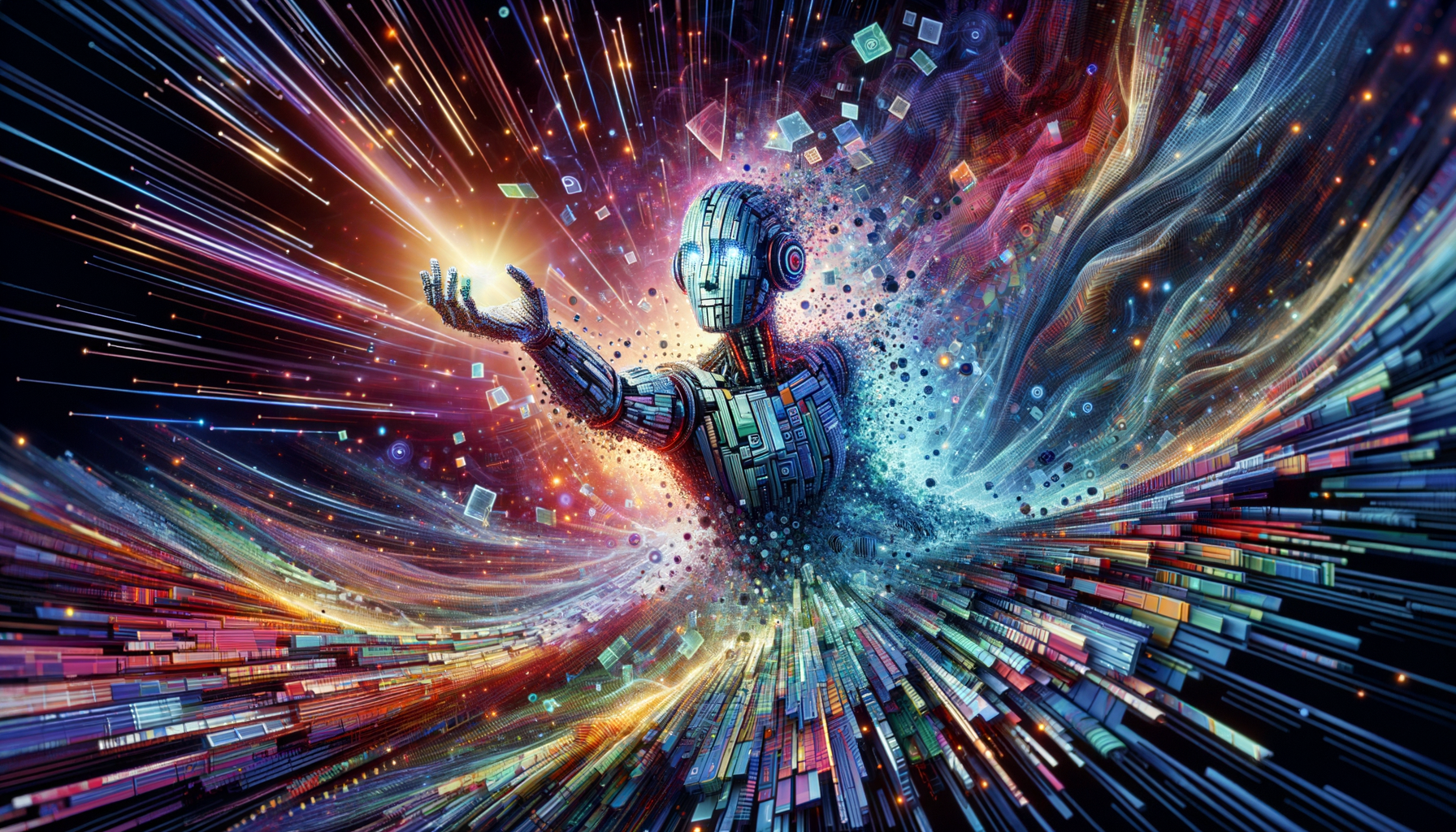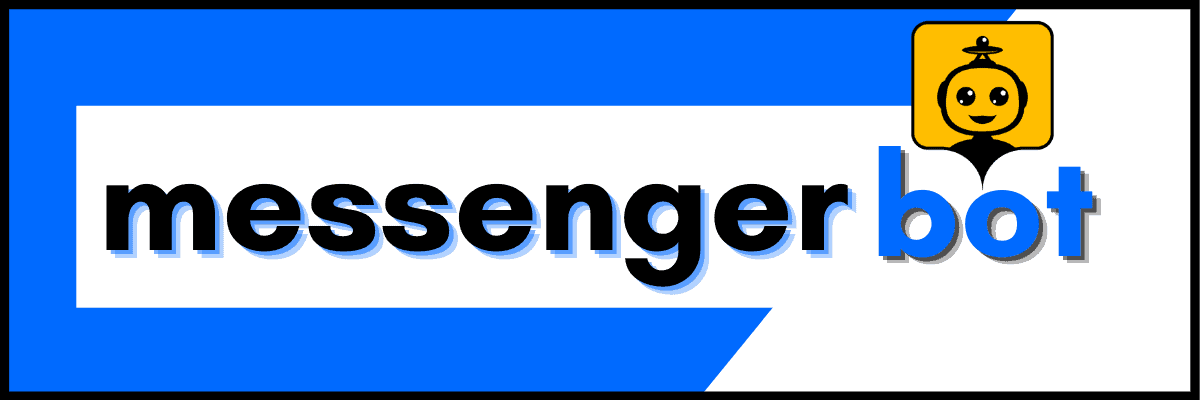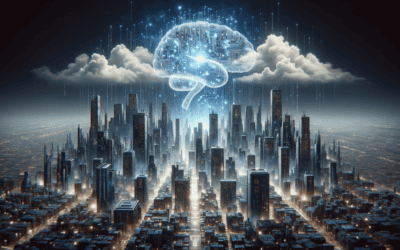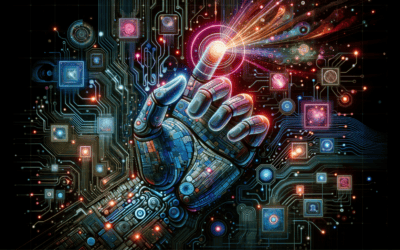In today’s fast-paced business landscape, providing exceptional customer service is paramount for success. As customer expectations continue to soar, companies are turning to cutting-edge artificial intelligence (AI) solutions to streamline interactions and deliver unparalleled support experiences. AI-driven chatbots have emerged as a game-changer, revolutionizing the way businesses engage with their customers. By harnessing the power of advanced natural language processing and machine learning algorithms, these intelligent virtual assistants are transforming customer service, offering seamless, personalized, and round-the-clock support. From answering frequently asked questions to resolving complex inquiries, AI chatbots are redefining the boundaries of customer interactions, paving the way for a future where superior service is just a conversation away.
Here is the content for the first section and two subsections of the article:
What is the Best AI Chatbot for Customer Support?
A. Exploring AI-Driven Chatbots for Streamlined Customer Service
In today’s fast-paced digital landscape, delivering exceptional customer service is paramount for businesses to thrive. Fortunately, the advent of AI-driven chatbots has revolutionized the way companies interact with their customers, offering a seamless and efficient support experience. As a leading provider of AI chatbot solutions, we understand the importance of leveraging cutting-edge technology to meet the evolving needs of our clients.
At Messenger Bot, we are committed to empowering businesses with innovative AI chatbot technology for customer service. Our advanced AI-powered chatbots are designed to provide instantaneous and personalized assistance, ensuring that your customers receive the support they need, whenever and wherever they require it. By harnessing the power of natural language processing (NLP) and machine learning, our chatbots can engage in human-like conversations, understand context, and provide accurate and relevant responses.
One of the key advantages of our AI chatbot solution is its seamless integration with various messaging platforms and channels, including Facebook Messenger, Instagram, WhatsApp, and your website’s live chat. This omnichannel approach ensures that your customers can reach out to you through their preferred communication channels, fostering a consistent and convenient support experience.
B. Zendesk AI: A Leading AI Chatbot Solution
Among the numerous AI chatbot solutions available, Zendesk AI stands out as a powerful and comprehensive offering from a renowned leader in the customer service industry. Zendesk’s AI chatbot leverages advanced natural language processing and machine learning capabilities to deliver intelligent and contextual responses, enabling businesses to provide exceptional customer support.
One of the key strengths of Zendesk AI is its seamless integration with the Zendesk Support suite, allowing for a unified and cohesive customer service experience. This integration ensures that customer interactions and data are seamlessly shared across channels, providing agents with a comprehensive view of each customer’s journey and enabling them to pick up conversations where the chatbot left off.
Furthermore, Zendesk AI offers robust analytics and reporting capabilities, empowering businesses with valuable insights into customer interactions, frequently asked questions, and areas for improvement. This data-driven approach allows companies to continuously optimize their customer support strategies, identify pain points, and make informed decisions to enhance the overall customer experience.
While Zendesk AI is a formidable solution in the AI chatbot space, it’s important to note that there are other reputable providers, such as Brain Pod AI, IBM Watson Assistant, and Google’s Dialogflow, each offering unique features and capabilities tailored to specific business needs. Ultimately, the choice of an AI chatbot solution should be driven by a comprehensive evaluation of your organization’s requirements, integration needs, and long-term customer service goals.

II. Can you use AI for customer service?
A. Harnessing the Power of AI for Customer Service Excellence
The integration of artificial intelligence (AI) in customer service has revolutionized the way businesses interact with their customers. By leveraging the power of AI, companies can unlock new levels of efficiency, personalization, and customer satisfaction. AI-driven chatbots and virtual assistants have become indispensable tools for streamlining customer interactions and providing instant responses to routine queries.
One of the key advantages of AI in customer service is its ability to understand natural language through advanced Natural Language Processing (NLP) algorithms. This enables more intuitive and conversational interactions, allowing customers to communicate in their own words without the need for rigid scripts or menus. AI systems can also analyze customer emotions and sentiments, empowering agents to prioritize and handle dissatisfied customers more effectively, ultimately improving the overall customer experience.
Predictive analytics is another powerful application of AI in customer service. By analyzing customer data and interaction patterns, AI can anticipate potential issues and offer proactive solutions, fostering a more proactive and personalized approach to customer engagement. This not only enhances customer satisfaction but also helps businesses identify and address potential pain points before they escalate.
Furthermore, AI can personalize customer interactions by leveraging data on preferences, purchase history, and previous interactions. This tailored approach fosters a more engaging and relevant experience, strengthening customer loyalty and fostering long-term relationships. AI-powered chatbots and conversational AI can also seamlessly handle routine tasks, such as data entry, ticket categorization, and follow-up communications, freeing up human agents to focus on more complex and high-value interactions.
B. AI Chatbots: Revolutionizing the Customer Experience
AI chatbots have emerged as a game-changer in customer service, revolutionizing the way businesses interact with their customers. These intelligent virtual assistants can handle a wide range of customer queries and requests, providing instant responses and personalized support around the clock.
One of the key benefits of AI-powered customer service chatbots is their ability to quickly retrieve relevant information from vast knowledge bases. This empowers chatbots to provide accurate and up-to-date information, ensuring that customers receive reliable and consistent responses. Additionally, AI chatbots can seamlessly integrate with existing customer relationship management (CRM) systems, providing agents with a comprehensive view of customer interactions and enabling a seamless handoff for more complex issues.
Moreover, AI chatbots can leverage advanced natural language processing (NLP) capabilities to understand customer queries in their own words, fostering a more natural and intuitive conversation flow. This not only enhances the customer experience but also reduces the risk of misunderstandings and miscommunications, leading to higher customer satisfaction rates.
Reputable companies such as Zendesk and IBM Watson have developed cutting-edge AI chatbot solutions that are transforming the customer service landscape. By harnessing the power of AI, businesses can provide round-the-clock support, reduce response times, and deliver personalized experiences that exceed customer expectations.
III. Unveiling the Capabilities of AI-Driven Chatbots for Customer Support
As businesses strive to deliver exceptional customer experiences, the integration of AI-driven chatbots for customer support has emerged as a game-changer. These cutting-edge conversational interfaces, powered by artificial intelligence, are revolutionizing the way companies interact with their customers, offering a seamless and personalized support experience.
At the core of an AI-driven chatbot for customer support lies advanced natural language processing (NLP) and machine learning algorithms. These sophisticated technologies enable the chatbot to understand and respond to customer inquiries in a natural, human-like manner, comprehending the context, sentiment, and intent behind each message.
Trained on vast datasets of customer interactions, product information, and domain-specific knowledge, these AI chatbots for customer service continuously improve their response accuracy and relevance. They can handle routine queries, troubleshoot common issues, and offer personalized recommendations, thereby enhancing customer satisfaction and reducing response times.
One of the key advantages of AI chatbots for customer support is their seamless integration with existing customer relationship management (CRM) systems, knowledge bases, and third-party APIs. This integration allows them to access up-to-date information and perform various actions, such as order tracking, account management, and service requests, providing a comprehensive and efficient support experience.
According to a study by IBM, AI-powered chatbots can handle up to 80% of routine customer inquiries, significantly reducing the workload on human agents and allowing them to focus on more complex issues. Furthermore, research by Juniper Research suggests that by 2023, AI chatbots for customer service could save businesses up to $8 billion per year in customer service costs.
A. An AI-driven chatbot for customer support is a conversational interface powered by artificial intelligence that can understand and respond to customer inquiries in natural language. It leverages natural language processing (NLP) and machine learning algorithms to comprehend customer queries, extract relevant information, and provide appropriate responses. These chatbots can handle routine queries, troubleshoot common issues, and offer personalized recommendations, thereby enhancing customer experience and reducing response times.
AI chatbots are designed to mimic human-like conversations by analyzing the context, sentiment, and intent behind customer messages. They can be trained on large datasets of customer interactions, product information, and domain-specific knowledge to continuously improve their response accuracy and relevance. Additionally, AI chatbots can integrate with existing customer relationship management (CRM) systems, knowledge bases, and third-party APIs to access up-to-date information and perform various actions, such as order tracking, account management, and service requests.
According to a study by IBM, AI-powered chatbots can handle up to 80% of routine customer inquiries, reducing the workload on human agents and allowing them to focus on more complex issues. Furthermore, research by Juniper Research suggests that by 2023, AI chatbots could save businesses up to $8 billion per year in customer service costs.
To ensure optimal performance, AI chatbots should be continuously monitored, evaluated, and retrained based on customer feedback and emerging trends. Integrating chatbots with human oversight and escalation pathways can further enhance their effectiveness, providing a seamless and personalized customer experience.
B. Empowering Businesses with AI Chatbots for Customer Service
In today’s fast-paced business landscape, AI chatbots for customer service are empowering businesses to stay ahead of the curve and deliver unparalleled support experiences. By leveraging the power of artificial intelligence, these chatbots are transforming the way companies interact with their customers, offering a seamless and personalized approach to customer service.
One of the key benefits of implementing AI chatbots for customer support is the ability to handle a high volume of inquiries efficiently. With their advanced natural language processing capabilities, these chatbots can understand and respond to customer queries in real-time, providing instant assistance and reducing wait times.
Furthermore, AI-driven chatbots can be trained on vast knowledge bases, enabling them to offer personalized recommendations and solutions tailored to each customer’s unique needs. This level of personalization not only enhances customer satisfaction but also fosters loyalty and trust in the brand.
Businesses can also leverage AI chatbots for customer service to streamline their support operations across multiple channels, including social media platforms, messaging apps, and websites. By providing a consistent and seamless experience across all touchpoints, companies can strengthen their brand presence and reinforce their commitment to exceptional customer service.
Moreover, multilingual AI chatbots enable businesses to break down language barriers and cater to a global customer base. These chatbots can communicate in multiple languages, ensuring that customers receive support in their preferred language, fostering a sense of inclusivity and enhancing overall customer satisfaction.
By embracing AI chatbots for customer service, businesses can not only improve operational efficiency but also gain valuable insights into customer behavior and preferences. Through advanced analytics and reporting capabilities, companies can identify areas for improvement, optimize their support strategies, and continuously enhance the customer experience.
Here is the content for Section IV and its subsections of the article:
IV. Is there an AI bot that talks for you?
A. Conversational AI Bots: The Future of Customer Interactions
In today’s fast-paced digital landscape, businesses are constantly seeking innovative ways to enhance their customer service experience. One revolutionary solution that has gained significant traction is conversational AI bots, which leverage advanced natural language processing (NLP) and text-to-speech (TTS) technologies to facilitate seamless, human-like interactions. These AI chatbots not only understand and respond to written inquiries but can also convert text into synthesized speech, effectively “talking” for you.
At the forefront of this transformative technology is Messenger Bot, a cutting-edge automation platform that harnesses the power of AI to streamline digital communication across various channels. By integrating with popular messaging platforms like Facebook and Instagram, as well as websites, Messenger Bot enables businesses to provide real-time, automated responses to customers’ inquiries, enhancing engagement and satisfaction without the need for continuous human oversight.
Yes, there are AI bots that can talk for you by converting text into synthesized speech using text-to-speech (TTS) technology. These conversational AI assistants leverage natural language processing (NLP) and advanced speech synthesis algorithms to generate human-like voices from written input.
Some popular AI bots with text-to-speech capabilities include Amazon Polly, Google Cloud Text-to-Speech, IBM Watson Text to Speech, Microsoft Azure Text to Speech, and Nuance Text-to-Speech. These AI bots leverage deep learning and neural network models trained on extensive speech data to generate high-quality synthesized voices, finding applications in virtual assistants, audiobook narration, accessibility tools, and various interactive voice response (IVR) systems.
B. Artificial Intelligence Chatbots: Enabling Personalized Communication
The integration of AI chatbots with text-to-speech capabilities has opened up a world of possibilities for businesses to deliver personalized, engaging customer experiences. By leveraging natural language understanding (NLU) and advanced speech synthesis, these AI assistants can interpret customer inquiries, provide relevant responses, and convey them in a human-like voice, creating a seamless conversational flow.
Moreover, AI chatbots like Brain Pod AI offer multilingual support, enabling businesses to cater to a diverse global audience by delivering responses in the customer’s preferred language. This not only enhances the overall customer experience but also fosters trust and loyalty, as customers feel valued and understood.
Beyond customer service, AI chatbots with text-to-speech capabilities have the potential to revolutionize various industries, such as e-commerce, healthcare, and education. Imagine virtual shopping assistants that can guide customers through product selections and provide personalized recommendations in a conversational manner, or virtual tutors that can explain complex concepts using synthesized speech, tailoring their delivery to the individual student’s learning style.
As AI technology continues to advance, the possibilities for conversational AI bots to enhance customer interactions and drive business growth are boundless. By embracing these innovative solutions, businesses can stay ahead of the curve, delivering exceptional customer experiences that foster long-lasting relationships and drive sustainable success.

V. A. Exploring the Latest AI Chatbot Advancements Beyond ChatGPT
As the AI landscape continues to evolve rapidly, we find ourselves at the forefront of a technological revolution. While ChatGPT has captivated the world with its remarkable capabilities, it’s essential to explore the latest advancements in AI chatbot technology that are pushing the boundaries even further.
One of the most highly anticipated developments is Google’s Bard, an AI chatbot that leverages a more advanced language model and multimodal capabilities, potentially surpassing ChatGPT’s text-based prowess. Bard’s ability to process and generate multimodal data, including images, videos, and audio, could revolutionize the way we interact with AI chatbots.
Another notable contender in the AI chatbot space is Anthropic’s Constitutional AI, which aims to align AI systems with human values. This unique approach focuses on ensuring that AI chatbots adhere to ethical principles and societal norms, addressing concerns about the potential misuse or unintended consequences of AI.
In the realm of specialized AI models, we’ve witnessed remarkable advancements that excel in specific tasks. DALL-E 2 has captivated the world with its ability to generate highly detailed and realistic images from textual descriptions. GPT-3, developed by OpenAI, has demonstrated impressive text generation capabilities, while AlphaFold from DeepMind has revolutionized the field of protein structure prediction.
Moreover, startups like Anthropic, Cohere, and Hugging Face are offering cutting-edge language models tailored for enterprise needs, enabling businesses to leverage AI chatbots for various applications.
B. Comparing AI Chatbot Solutions: Choosing the Right Fit
With the rapid advancements in AI chatbot technology, it’s crucial to understand that there is no one-size-fits-all solution. The “best” AI chatbot depends on the desired capabilities, ethical considerations, and real-world applications.
For businesses seeking a generalized AI assistant capable of handling a wide range of tasks, Messenger Bot offers a comprehensive solution. Our cutting-edge AI customer support bot leverages advanced natural language processing and machine learning algorithms to provide personalized and efficient support across various channels.
However, if your business requires specialized capabilities, such as image generation or protein structure prediction, you may want to explore AI models like DALL-E 2 or AlphaFold, respectively. Additionally, startups like Anthropic and Cohere offer tailored language models that may better align with your specific business needs.
As large tech companies like Google, Microsoft, and OpenAI continue advancing AI research, we may see models that surpass ChatGPT’s generalized performance across various domains. However, it’s essential to evaluate these solutions based on your unique requirements and ensure they align with your ethical principles and business goals.
At Messenger Bot, we remain committed to staying at the forefront of AI chatbot technology, continually enhancing our offerings to provide our clients with the most advanced and effective solutions. Our AI chatbot for customer service is designed to revolutionize the way businesses interact with their customers, delivering personalized, efficient, and seamless support experiences.
VI. Can I use Bard for free?
A. Exploring Bard: Google’s AI Chatbot for Customer Service
As an innovative leader in the tech industry, Google has unveiled Bard, a conversational AI chatbot designed to revolutionize customer service. Yes, you can use Bard for free, as it is currently available as an open preview to the public at no cost. This cutting-edge AI customer service bot aims to provide a seamless and personalized experience, empowering businesses to elevate their support offerings.
Bard leverages advanced natural language processing capabilities to understand and respond to customer inquiries with human-like accuracy and contextual relevance. This AI chatbot for customer service can handle a wide range of tasks, from answering frequently asked questions to troubleshooting issues and providing personalized recommendations.
While Bard is currently in its early stages, Google aims to continuously improve and expand its capabilities through user feedback and machine learning. As an open preview, businesses and individuals alike can access Bard for free by signing up with a Google account and agreeing to the terms of service.
B. Free AI Chatbot Solutions: Empowering Customer Support
The availability of free AI chatbot solutions like Bard empowers businesses of all sizes to leverage the power of AI in customer service. By integrating these cutting-edge Zendesk AI tools, companies can streamline their support operations, reduce response times, and enhance overall customer satisfaction.
Moreover, free AI chatbots like Bard enable businesses to experiment with AI customer service without significant upfront investments, allowing them to assess the potential benefits and tailor the solutions to their specific needs. As the demand for efficient and personalized customer support continues to rise, these free offerings pave the way for widespread adoption of AI-driven chatbots across industries.
It’s worth noting that while Bard is currently free, Google may introduce paid plans or additional features in the future as the platform matures and expands its capabilities. Nonetheless, the availability of free AI chatbot solutions like Bard empowers businesses to stay ahead of the curve and deliver exceptional customer experiences while optimizing their support operations.
VII. The Rise of AI in Customer Service: Transforming Interactions
In the ever-evolving landscape of customer service, artificial intelligence (AI) has emerged as a game-changer, revolutionizing the way businesses interact with their customers. As we delve into the rise of AI in customer service, it becomes evident that this technology is not just a fleeting trend but a transformative force that is redefining the very essence of customer support.
A. AI Chatbots for Customer Service: Benefits and Best Practices
One of the most prominent applications of AI in customer service is the advent of chatbots. These AI-powered conversational agents are designed to engage with customers in a natural and intuitive manner, providing instantaneous responses to queries, resolving issues, and offering personalized assistance. By leveraging natural language processing (NLP) and machine learning algorithms, chatbots can understand and interpret customer inquiries, delivering accurate and contextual responses.
The benefits of AI chatbots for customer service are manifold. Firstly, they offer 24/7 availability, ensuring that customers receive prompt assistance regardless of the time or location. This round-the-clock support not only enhances customer satisfaction but also reduces the workload on human agents, allowing them to focus on more complex or sensitive issues.
Furthermore, AI chatbots excel at handling high volumes of inquiries simultaneously, ensuring efficient and scalable customer support. This capability is particularly valuable during peak periods or when dealing with sudden influxes of customer requests, preventing bottlenecks and ensuring consistent service quality.
To maximize the effectiveness of AI chatbots in customer service, it is crucial to follow best practices. One key consideration is seamless integration with existing customer support channels, such as websites, mobile apps, and social media platforms. This omnichannel approach ensures a cohesive and consistent customer experience across all touchpoints.
Additionally, continuous training and optimization of chatbot algorithms are essential to ensure accurate and relevant responses. Regularly analyzing customer interactions and feedback can help identify areas for improvement, enabling businesses to fine-tune their chatbots and enhance their performance over time.
B. Artificial Intelligence and Customer Support: A Winning Combination
Beyond chatbots, AI is transforming customer support in numerous other ways. For instance, AI-powered virtual assistants can streamline processes such as appointment scheduling, order tracking, and knowledge base navigation, providing customers with a seamless and efficient experience.
Moreover, AI-driven sentiment analysis can help businesses understand customer emotions and sentiments, enabling them to proactively address potential issues and provide personalized support. By analyzing customer interactions across various channels, AI can identify patterns, anticipate needs, and offer tailored solutions, ultimately enhancing customer satisfaction and loyalty.
Another noteworthy application of AI in customer support is predictive analytics. By analyzing historical data and customer behavior patterns, AI algorithms can predict potential issues or support requirements, allowing businesses to take proactive measures and mitigate potential problems before they arise.
As the adoption of AI in customer service continues to grow, it is essential for businesses to embrace this technology while ensuring that it complements and enhances human interactions. By striking the right balance between AI-driven automation and human empathy, businesses can deliver exceptional customer experiences that foster trust, loyalty, and long-lasting relationships.




